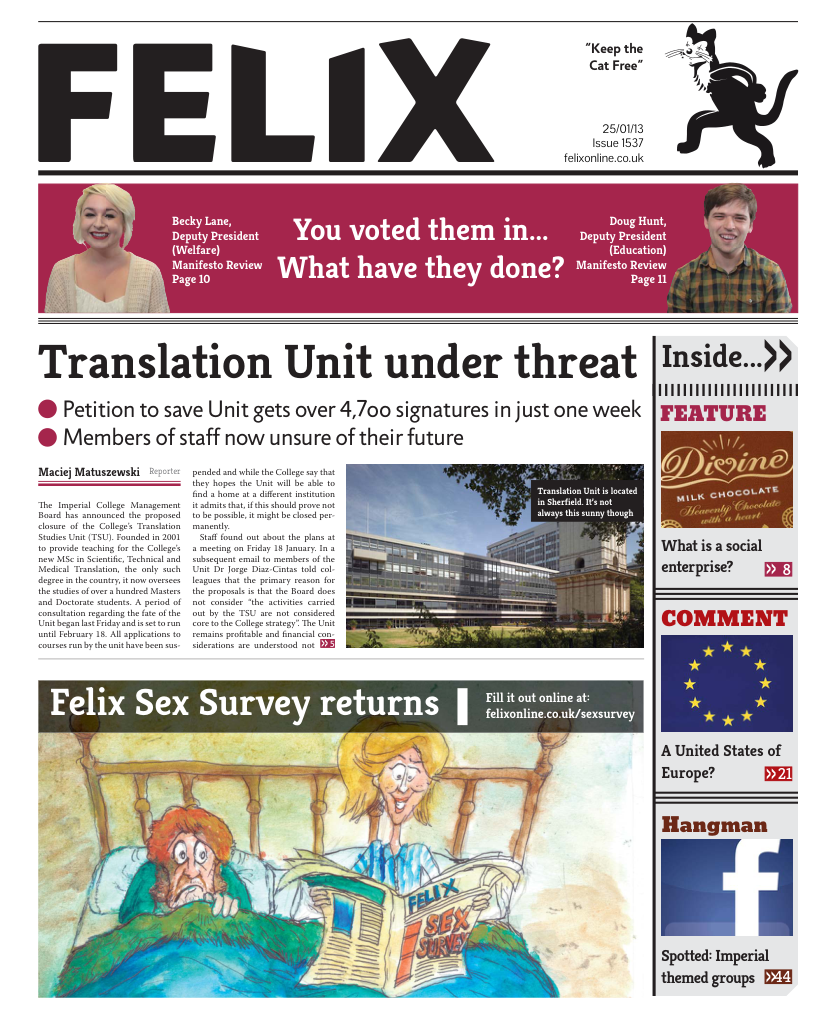Billie Piper and Dr. James
Science and art collide in a no-holds barred battle for the ages

Science and art rarely seem to collaborate in popular culture (and we are not talking about science fiction here). It is a shame, because science is inherently intriguing without requiring the embellishment of artistic and creative input. So, when they are combined, they are a strong force of entertainment.
The Effect is a play that brings together Connie and Tristan (Billie Piper and Jonjo O’Neill) during a trial to understand the effects of a new dopamine-based treatment for depression on healthy adults. They are under the supervision of Dr James (Anastasia Hille) who is battling against a depression, triggered by the immorality of both her present situation and her past history with ex-partner, Toby (Tom Goodman-Hill. This is the man who has developed the drugs that are being used in the trial that she is overseeing.
The strong cast was well suited to the staging at the intimate Cottlesloe Theatre, the audience entirely surrounding the action and looking down upon the actors, who had no room for errors. In any case, they did not commit any. Even Tristan’s tap dance in an effort to woo Connie was perfect.
What was more impressive, though, was how thought-provoking the play was. As the participants begin falling for each other, Connie begins to question the love she feels for Tristan. Dr James begins to question the ability of the drug, and both begin to question the significance of the increased levels of dopamine in the participants’ systems.
Speculation is rife: which is the cause and which is the effect? For Connie, does it even matter?
When Tristan ends up with transient global amnesia, he is no longer the same man Connie fell for, and, although she still loves him, she begins to question what the basis of a human identity is.
Although this was a slightly obvious tack to take, the writing (Lucy Prebble) was easily the highlight of this play, even more than so than the high quality acting and directing (Rupert Goold).
Especially intriguing was the character of Dr James. Her kind and genuinely caring and open nature towards Tristan and Connie, doing everything she could to reassure them as well as taking responsibility for Tristan’s amnesia, made her very easy to sympathise with.
After building up such a strongly positive opinion of her, digesting her controversial opinions on the delicate topic that is depression was particularly entertaining.
To her, depression is not a disease. Mildly depressed people have a more realistic view of the world, and are only affected because they are freed of the delusions which keep healthy individuals happy. Drugs cannot treat depression because the underlying “chemical imbalance” causing it has not been elucidated. The general public is not sufficiently educated on what little understanding has been gleaned from research. Drug companies exploit the relative ignorance of sufferers by offering drugs which inevitably cannot treat their depression. The idea of administering drugs for depression is as ridiculous to Dr James as the notion of the four humours.
It was controversial because these were the opinions of a “professional”, which led to the audience pondering over how relevant they are to the thoughts of actual professionals on the same topic. It is interesting to note that such an opinion, and many other aspects of the play are a freeze frame on the current attitudes, social and medical, towards depression. More than most contemporary plays, The Effect highlights a topic of great significance to our society today. By exploring depression, Prebble explores its reflection of society. Whereas in a lot of contemporary writing the present is conveyed via the past, or modern societal values are explored in very obvious ways, Prebble’s The Effect is definitely something unique.
It was disappointing that the love aspect of the storyline did not seem to be as carefully considered. It was only a matter of days before the lead characters “fell in love”, which seemed a little too Hollywood. Although I had no qualms with the idea that such characters felt strong infatuation, their process of falling in love was incredibly unbelievable and annoyingly unoriginal.
Furthermore, if Connie is a student who lives in a “shit hole”, how does she have the capacity to bring home and support another adult with amnesia due to last an indefinite amount of time?
Aside from the few blips, if anything (for science students especially) it is definitely worth going along for the “psychology is not a real science” jokes.
The Effect is on at the National Theatre. Tickets from £12. Until 23rd February.









